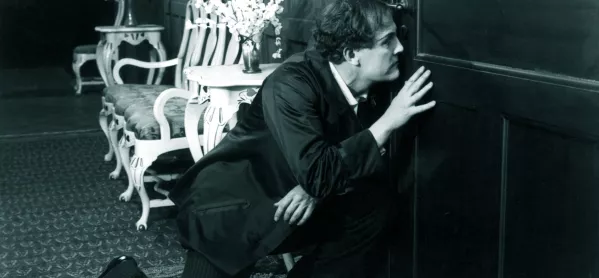Relinquishing control of your own class can be difficult.
You spend so much time preparing and teaching lessons, marking, assessing, managing behaviour and dealing with parents, it’s difficult to step back, evaluate your teaching persona and understand what your class is truly like.
Quick read: How observations can lighten your workload
Quick listen: Why we need more hands-on learning in schools
Want to know more? How horticulture transforms student mental health
But observing your own class has a number of benefits, and valuable things can be learned by letting go of the reins, even if for one lesson.
Teacher observation: identifying good and bad practice
In my NQT year, I was always told to be more commanding and assertive. Seeing how another teacher demonstrated this was useful.
Building up authority takes time, but watching a more experienced colleague manage your class effectively can accelerate this change.
But I was also aware of my positives. Offering challenging follow-up questions and giving children time to reflect and analyse their successes was something I felt I did better than the teachers I observed.
We all have strengths and weaknesses; watching another teacher can help you to see what they are.
You’ll recognise children who go under the radar
We all have those pupils who are seemingly fine, working away obligingly, then you pick up their book at the end of the lesson and wonder what planet they disappeared to for the past hour.
Observing my class from a non-teacher’s perspective really helped me to identify the children who don’t always seem like they need help, or may not ask, but perhaps need a little more instruction or guidance.
You’ll notice less obvious behaviours
Some children were more interested in picking their noses than the lesson. One looked to be building some kind of structure out of stationery in his desk. One group was passing a rubber around under the table, participating in some incomprehensible game.
All small things that weren’t quite disruption but hindered the learning and progress in the lesson nonetheless.
Observation can help to highlight other barriers to learning, too. I spotted some children who seemed more hesitant from a non-teaching perspective in the lesson, which helped me to organise my focus groups more throughout the week to offer support.
You’ll see that all teachers make mistakes
It’s easy to perceive someone more senior or experienced as somehow better. But seeing a headteacher give a challenging higher-ability group work that’s too easy for them, for example, throws up the realisation that you can prepare all you like but what you’ve planned won’t always work.
We all make mistakes, probably a few per day or lesson. No one is immune to this, regardless of how long they’ve been teaching for.
You’ll get more from supporting adults
Ideas about putting the spare adults with the most challenging children, or children who require the most support, may be our first decision when considering how to use another adult within a lesson.
But this isn’t always the most beneficial. Equal time for each pupil is more productive and seeing my TA in one lesson stress and strain with a child with ADHD made me realise that both would benefit from having different interactions with different people as opposed to reliving a similar struggle each day.
Alex Waite is a supply teacher in South London





